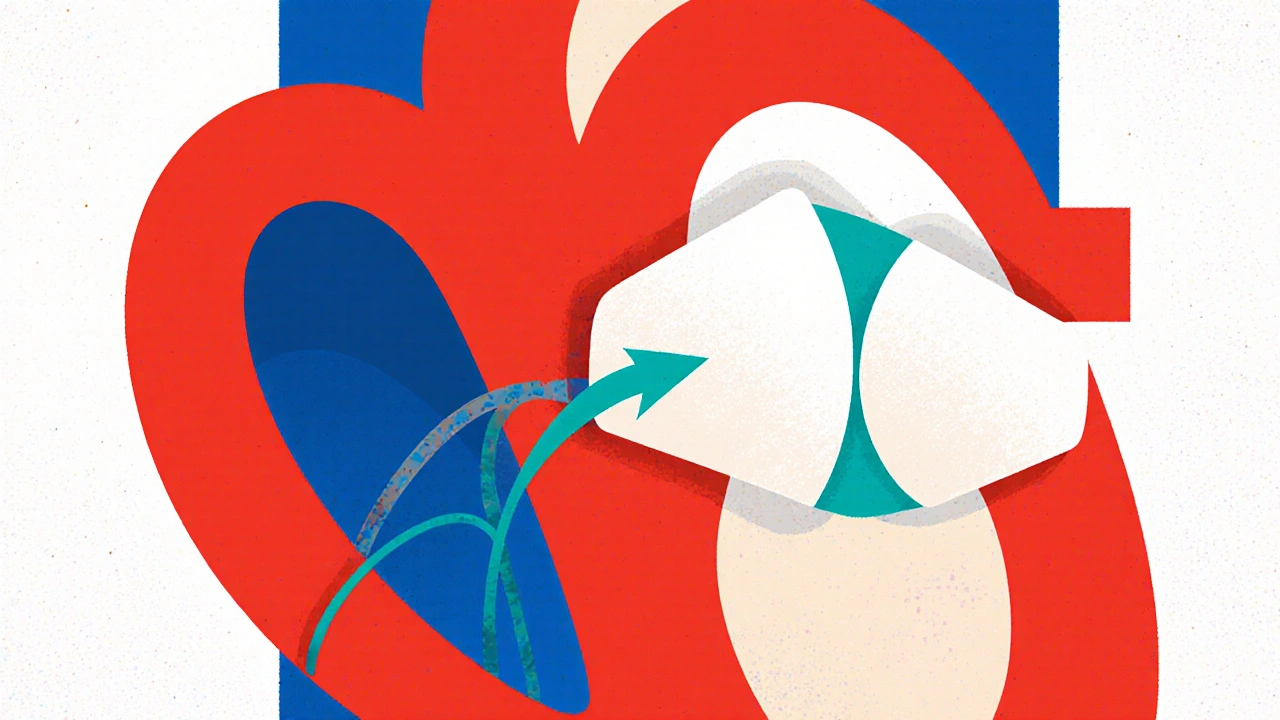Heart Failure: Causes, Medications, and What You Need to Know
When your heart failure, a condition where the heart can't pump blood well enough to meet the body's needs. Also known as congestive heart failure, it’s not a single disease but a result of other problems like high blood pressure, coronary artery disease, or damaged heart muscle. It doesn’t just mean you get tired faster—it means fluid builds up in your lungs, legs, or abdomen because your heart is struggling to keep up.
Many people with heart failure are on medications that help, but some can make things worse if not managed right. For example, diuretics, drugs that help your body get rid of extra fluid like indapamide are common, but they need careful dosing. Too much can drop your blood pressure too low, and not enough leaves you swollen. Then there’s QT prolongation, a dangerous heart rhythm problem triggered by certain drugs—medications like some antidepressants or antifungals can stretch the heart’s electrical cycle, raising the risk of sudden cardiac events in people already weak from heart failure.
High blood pressure, or hypertension, chronic elevated pressure in the arteries, is one of the top causes of heart failure. Drugs like ramipril, an ACE inhibitor, are often prescribed to lower it, but they can make your skin more sensitive to the sun. And if you’re taking something like caffeine-heavy energy drinks or even certain painkillers, you might not realize they’re interfering with how your heart meds work. That’s why drug interactions matter—something as simple as coffee or ibuprofen gel could quietly undo the benefits of your treatment.
Heart failure doesn’t happen overnight. It’s often the slow result of other conditions—diabetes, kidney disease, even long-term sleep problems. And while you can’t always reverse it, you can slow it down. That’s where smart choices come in: knowing which meds to avoid, when to take your diuretics, how to spot early swelling, and what symptoms mean trouble. The posts below cover real cases—how a wrong combo of drugs triggered arrhythmia, why some people gain weight on antidepressants while fighting heart failure, how diuretics reduce swelling without wrecking your kidneys, and what to watch for when mixing common meds with heart treatments. This isn’t theory. It’s what people are actually dealing with—and what works.

How Left Ventricular Dysfunction Leads to Mitral Regurgitation - Causes, Diagnosis & Treatment
- Oct, 19 2025
- 7
Explore how left ventricular dysfunction causes functional mitral regurgitation, its diagnosis, treatment options, and ways to improve outcomes.
Categories
- Health and Medicine (62)
- Health and Wellness (57)
- Medicine (37)
- Women's Health (11)
- Mental Health (9)
- Men's Health (7)
- Beauty and Wellness (4)
- Health Information (4)
Archives
- February 2026 (8)
- January 2026 (25)
- December 2025 (28)
- November 2025 (25)
- October 2025 (27)
- September 2025 (14)
- August 2025 (3)
- July 2025 (2)
- June 2025 (2)
- May 2025 (3)
- April 2025 (4)
- March 2025 (4)
- online pharmacy
- medication safety
- dietary supplement
- health benefits
- dietary supplements
- generic drugs
- prevention
- fertility
- online pharmacy Australia
- side effects
- QT prolongation
- medication side effects
- diabetes medications
- GLP-1 agonists
- nocebo effect
- brand vs generic
- treatment
- treatment options
- benefits
- connection
